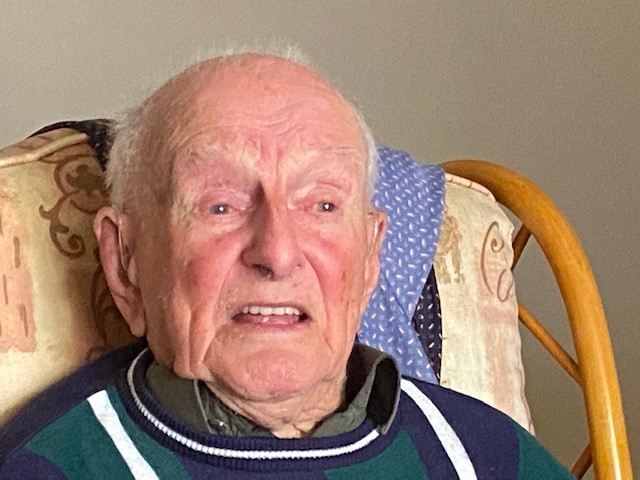“Give me a minute. It all gets a bit jumbled up in the mind. Ah yes, 1944, here we go….”
As we reflect on the sacrifices that so many made on D-Day, eighty years ago today, we remember those who walked among us who were there to experience this momentous period in Great Britain’s history. One such person was the wonderful 103-year-old Malcolm Cloutt, former RAF Warrant Officer and staunch supporter of RAF High Wycombe who sadly died on 30 April this year. I had the privilege of spending an afternoon with him where he reminisced about his war years and that fateful time around D-Day in June 1944…….
The Princes Risborough resident was eighteen in 1939 when he received his call up papers – “Despite Chamberlain waving his bit of paper it was obvious to other people in government that there was going to be a war,” commented the centenarian. Years of watching war films at the cinema had put him off the army. He hated the water, so the navy was given a miss. The Airforce was the last remaining arm that appealed. He had never chosen to be a pilot. “I only wanted to get into aircrew and didn’t mind what. I could have been a navigator or a gunner, but after an exam the interview panel at Cardington said I could train as a pilot,” said Malcolm.
“I lost all my teeth at seventeen. I have had false teeth for eighty years. It was mainly my mother loving me too much. She just let my teeth decay. I was very afraid of the dentist you see. She protected her little boy in that way. But it’s not the right way now.”
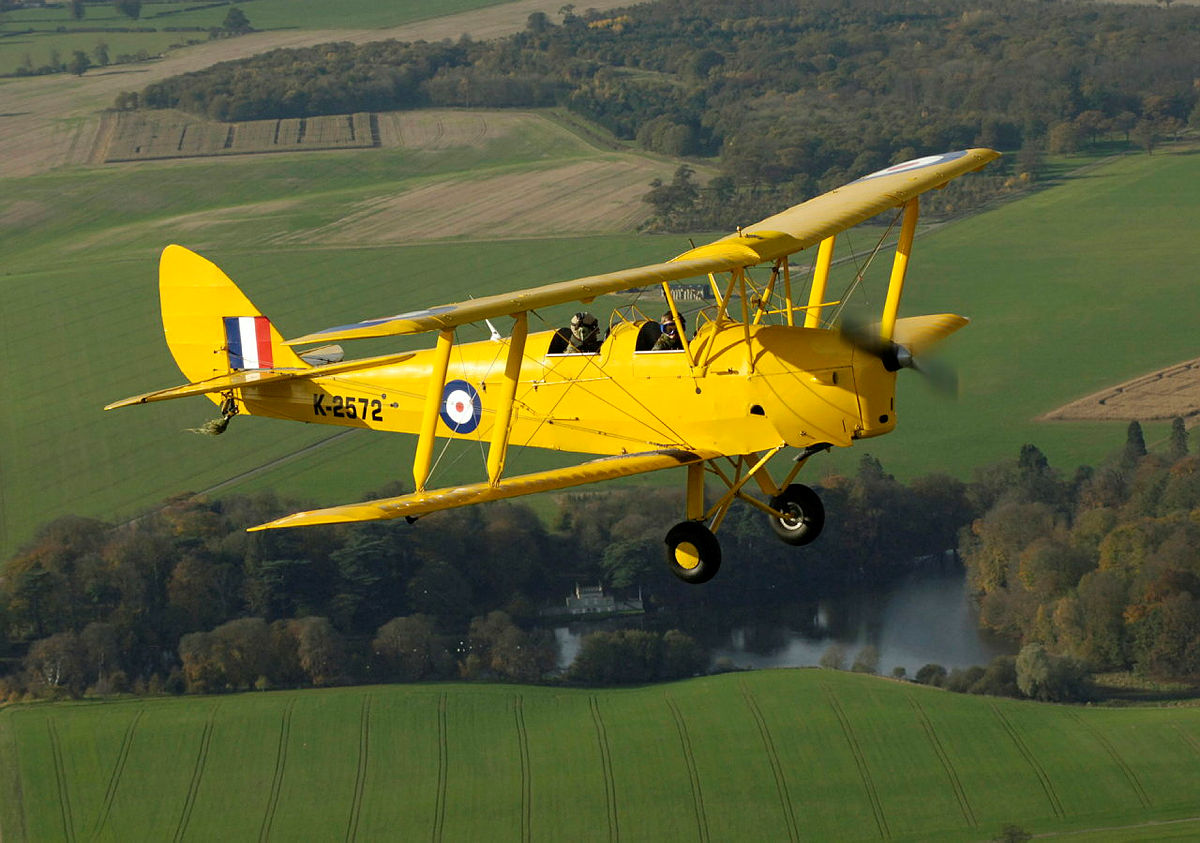
Early training on Tiger Moths gave him much needed experience. Landings often presented a problem. “They always wanted you to do a three-point landing and until you got that perfect you hadn’t got complete control of the aeroplane. I was always afraid that to pull the stick right back at the point of landing in case we took off again. All you had to do was get the stick back hard, the tail came down and then it worked,” reminisced the former pilot.
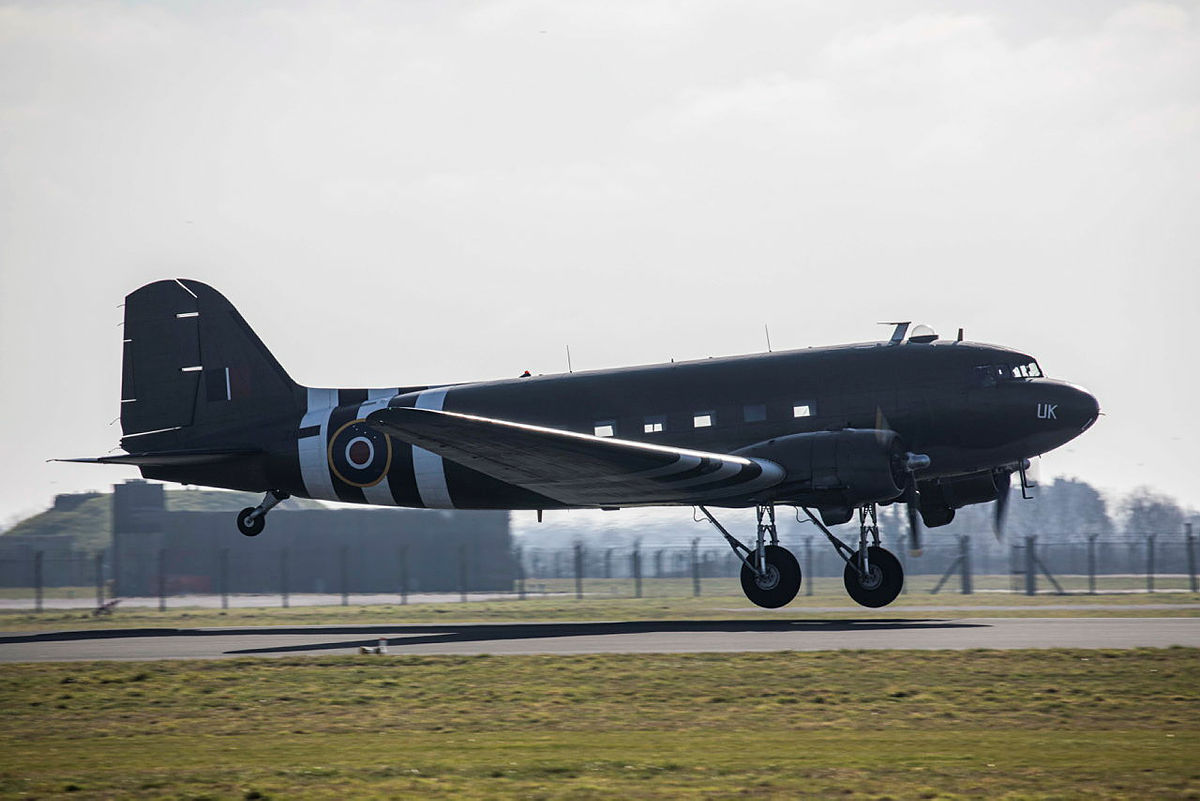
(courtesy of Cpl Sally Raimondo, 2021, BofB Memorial Flight)
Tiger Moths held a special place in Malcolm’s affections, as did the twin-engine Oxfords. He never flew Lancaster Bombers or Wellington Bombers, nor did he have a hankering to fly Hurricanes or Spitfires. The best aeroplane he ever piloted? “Probably the Douglas C47 Dakota…..You could hardly do any damage with them. They were so good natured,” added the former Warrant Officer.
“Flying? It was just so thrilling!”
After initial training the young pilot was sent to South Africa to do an advanced navigator’s course. He was then sent back to the UK to join Coastal Command via Ireland where he learned how to drop torpedoes with a crew flying Wellingtons.
Military operations saw Malcolm travel to Burma (now Myanmar), Rhodesia (now Zimbabwe) and Algiers in North Africa. He had to wait there before receiving the call to be sent back to the UK;
“At the end of May 1944 an order came confining us to camp. The phone box was sealed, all letters left open for censorship, and leave cancelled. Then came the order on June 4th to paint black and white stripes and the fuselage and wings of all our Dakotas and Horsa gliders to aid recognition by our forces on D-Day. The invasion of Europe was on!”
“6 June 1944? I don't remember feeling anything more than this was another day and another job we were going to do.”
Prior to any missions, Malcolm was sent to Netheravon in Wiltshire to study his routes for the forthcoming flights.
The mission for Malcolm’s crew was due to take place late evening, 5 June, with a footstep into the historic day itself.
“We went out at midnight to drop some paratroopers at strategic points. My responsibility as the co pilot was with final map reading at the end. Although we had been well trained in photographs of our particular landing run, visibility due to lack of light was minimal. There was absolutely no hope whatever of reading a map, it was too dark. We were not exactly in the right place to start with when we crossed the coast. My pilot was guided by our navigator, and we went hopelessly wrong. All I could see was the coast and waves washing up on the shore. I could only assume that the navigator had found his correction. I just had to assume that we were crossing the coast at the place that we were supposed to cross. There was no way of knowing where we were. It had to be done by how many minutes to the dropping zone to drop off the troops. At that point all I knew it was going to take three minutes to get from the coast to the drop. We were getting ready to drop (soldiers) so we could kept our speed down to below one hundred to roundabout ninety. I dropped my troops on time. And I just hope that we were in the right place….poor fellows.”
Nothing more was heard about the men according to Malcolm, as he returned home. I get the impression that the days around the 6th June 1944 were just considered as more sorties, like the many he had lived through over those six years of the war. It was only later that history has labelled it a watershed time.
“We had seen pictures of the beaches, which were just too horrible. It must have been ghastly.”
During this time Malcolm and his crew also had to deliver and fetch supplies and carry wounded soldiers to safety. Although it was eighty years previous, Malcolm recalled small details of events as though it were yesterday. There were long periods of silence and I sensed he was flicking through those pages of memories that formed the book of his life. He had witnessed much death and destruction and I was interested to understand how he coped with what he had seen;
“You just live with it. It just happens….it’s amazing that you seem to live through things without it seemingly affecting you,” was the former pilot’s honest response.
On numerous occasions Malcolm escaped death whilst his crews often perished. By August 1944 Malcolm and his crew were in Aykab (now Sittwe), Burma. He was about to fly out when he picked up acute bronchitis which rendered him confined to barracks. When he finally made it to the mess, he was told the news that his whole crew had been killed in a sortie. “Everything was so matter of fact in those days. It had possibly gone down over the Indian Ocean. That’s as much information as I could find out,” said Malcolm, sadly. At the age of ninety-three Malcolm revisited Burma and to Aykab where he attended a memorial to his fallen comrades.
Faith has played an enormous part in Malcolm’s life. As a committed member of the Gideons his belief in God is absolute: “I know Jesus is with me constantly. I see simple things like the flowers representing God in natural form.”
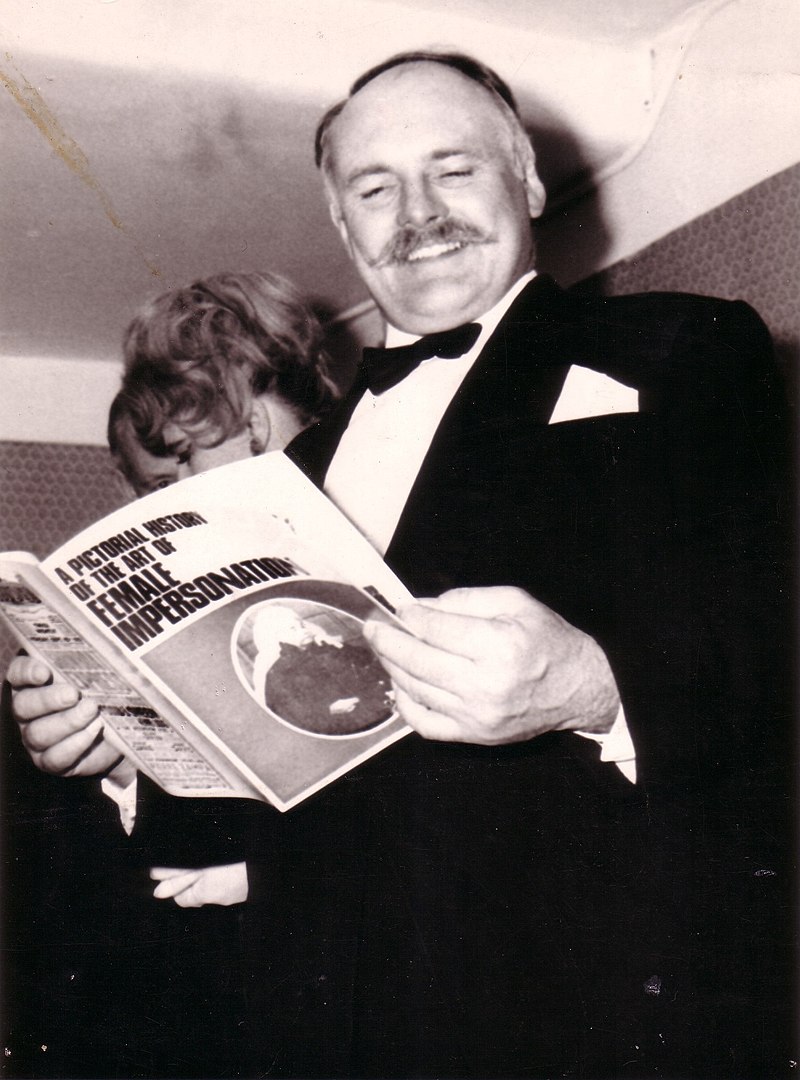
courtesy of Chris Shaw.
Along the way Malcolm formed friendships with the odd famous person or two including comedian and entertainer Jimmy Edwards DFC – “a jolly nice guy…we were in the same squadron at RAF Down Ampney in Wiltshire in the mid-40s. I knew him before he had the handlebar moustache!”
As the war closed in 1945 Malcolm had the option to sign up for a further five years. He had decided that he was not going to sign up for any longer. He had been engaged to Lily and was eager to get married on returning home. After the birth of his daughter and the dangerous situation arising over the Suez Canal, he declined to continue his service in the RAF.
It was almost impossible for Malcolm to read or write when we met – “one of the downsides of getting older,” was his resigned reply. But his memories were just as vivid, and he painted some wonderful images through his speech. He had lived long, his book of life coloured by experiences good and bad along the journey. He had also lived through numerous wars. Will mankind ever learn from wars, I asked him? Malcolm said no straightaway. “Whilst there are men like Napoleon & Hitler out there, no. You cannot change people’s natural nature. Mankind is naturally evil. And it comes out from time to time for some human nature they have a need for power, and they need to be strong.”
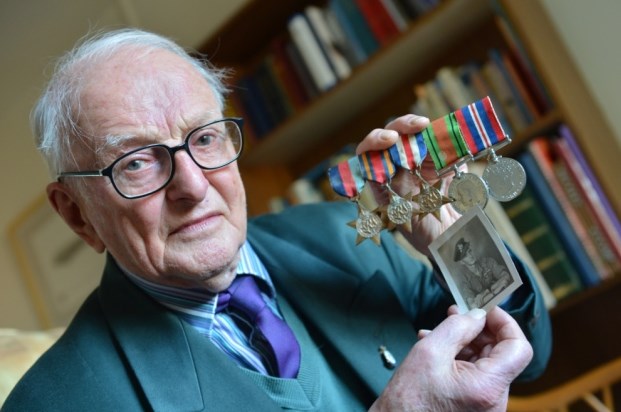
Courtesy of the Bucks Herald.
“Getting to 100? I can't say I feel any different, not mentally anyway. Bodily of course I'm going downhill!”
The first image I had walking into his home was a 102-year-old man talking into an Alexa (intelligent cloud-based voice) device. The old and the up-to-the-minute new colliding amused me. When Malcolm was born in 1920 the internet age was eighty years away and he could never have dreamed as a boy that one day such technology was possible.
“I can't think at any stage in my life I've ever thought about the future. Things have just unfolded. Life tends to just go along. It is only my Christian faith that I can pass on to anyone, but I can't teach them. They have to feel it for themselves.”
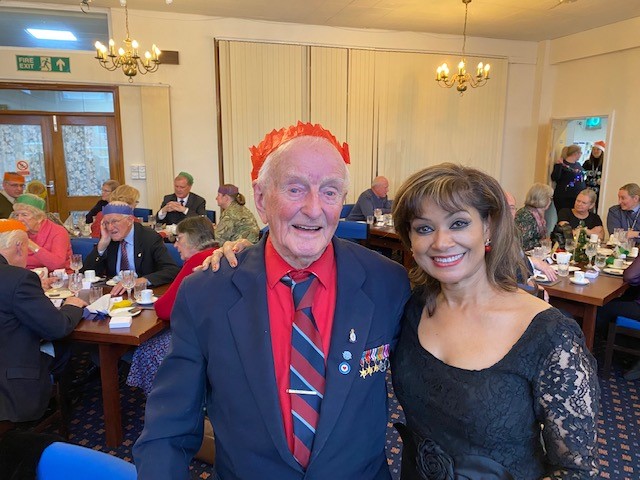
RAF HWY Veteran's Lunch
As our time together came to an end, I handed him some of his favourite Bournville dark chocolate as a thank you. He still had the twinkle in his eye that I remember from the previous year’s veteran’s lunch. Jogging through over a century of life is something that few of us will experience in our own lifetime and it was a privilege to be in the presence of someone who had seen so much and lived so long. WO Malcolm Cloutt had lived an extraordinary life and I will always remember his parting words to me; “I am waiting for God to call me to this new home that the Bible tells us about. I ought to view it with some trepidation I suppose but there's a combination of that and hopefulness.” Good luck, Malcolm on your continuing journey.
